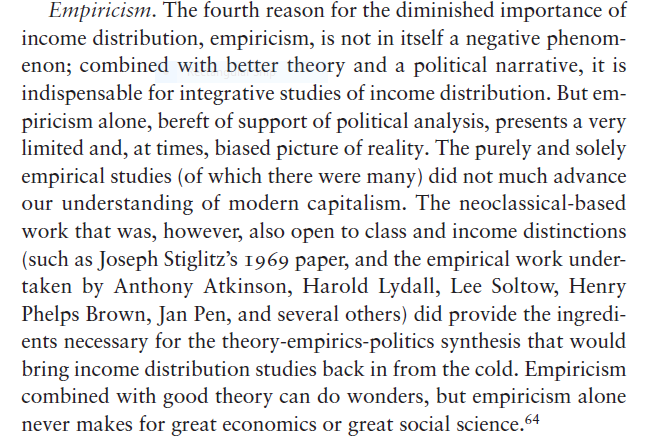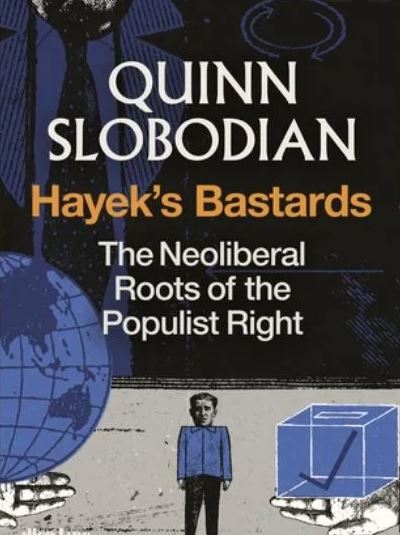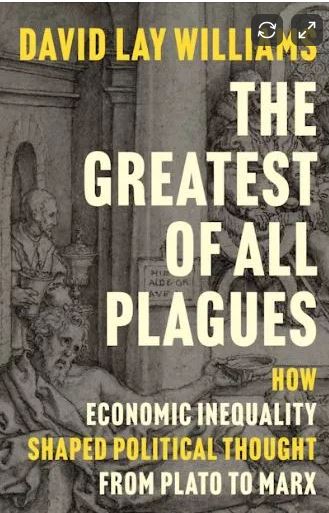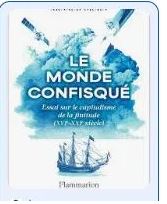Here is (for whoever may be interested) the list of books on China that I have read in the past 5-6 years;
in no particular order, with my assessments: 5 stars is the best, 2 the worst.
Books I reviewed on my blog are noted with ++.
in no particular order, with my assessments: 5 stars is the best, 2 the worst.
Books I reviewed on my blog are noted with ++.
John Palmer, The death of Mao, Faber & Faber, 2012 **
Jonathan Fenby, Will China dominate the 21st century, Polity, 2014 ***
Quan Yanchi, Mao: Man, not God ***
Jacques Gernet, Daily life in China on the Eve of Mongol Invasion 1250-76, Stanford UP, 1962. ****
Jonathan Fenby, Will China dominate the 21st century, Polity, 2014 ***
Quan Yanchi, Mao: Man, not God ***
Jacques Gernet, Daily life in China on the Eve of Mongol Invasion 1250-76, Stanford UP, 1962. ****
++Giovanni Arrighi, Adam Smith in Beijing: Lineages of the 21st Century, Verso, 2007. *****
Minxin Pei, China’s crony capitalism, Harvard UP, 2016. ****
Minxin Pei, China’s Trapped Transition, Harvard UP, 2006. ***
Minxin Pei, China’s crony capitalism, Harvard UP, 2016. ****
Minxin Pei, China’s Trapped Transition, Harvard UP, 2006. ***
++Martin Jacques, When China rules the world, Penguin, 2012. *****
Cheng Li, Chinese politics in the Xi Jinping era, Brookings, 2016. ***
++Julian Gewirtz, Unlikely Partners Chinese Reformers, Western Economists, and the Making of Global China, Harvard 2017. ****
Cheng Li, Chinese politics in the Xi Jinping era, Brookings, 2016. ***
++Julian Gewirtz, Unlikely Partners Chinese Reformers, Western Economists, and the Making of Global China, Harvard 2017. ****
Zhao Ziyang, Prisoner of the state, Simon and Schuster, 2009. ****
++Wang fan-hsi, Memoirs of a Chinese Revolutionary, Columbia UP, 1991. *****
++Kenneth Pomeranz, The Great Divergence, Princeton UP, 2000. *****
++Wang fan-hsi, Memoirs of a Chinese Revolutionary, Columbia UP, 1991. *****
++Kenneth Pomeranz, The Great Divergence, Princeton UP, 2000. *****
Alan Wood, Limits to Autocracy: From Sung Neo-Confucianism to a Doctrine of Political. Rights, 1995. ***
Xie Chuntao, Fighting corruption: how CPC works. 2016. ****
Wu Guoyou, The period of Den Xiaoping’s reformation ***
Chung li-Chang, Income of the Chinese Gentry, 1962. ***
Xie Chuntao, Fighting corruption: how CPC works. 2016. ****
Wu Guoyou, The period of Den Xiaoping’s reformation ***
Chung li-Chang, Income of the Chinese Gentry, 1962. ***
++Henry Kissinger, On China, Penguin, 2011. *****
Chi Hsin, Teng Hsiao-ping: A political biography, Cosmos Books, 1978. **
Wang Hui, China’s New Order, ed Theodore Huters, Harvard, 2003. **
++Jean-Pierre Cabestan, Demain la Chine: démocratie ou dictature?, Gallimard, 2019. ***
Chi Hsin, Teng Hsiao-ping: A political biography, Cosmos Books, 1978. **
Wang Hui, China’s New Order, ed Theodore Huters, Harvard, 2003. **
++Jean-Pierre Cabestan, Demain la Chine: démocratie ou dictature?, Gallimard, 2019. ***
++Ho-fung Hung, The China Boom: Why China will not rule the world, Columbia UP, 2017. *****
++Robert Bickers, Out of China: How the Chinese ended... Western domination, Penguin, 2017. ****
++Richard McGregor, Asia’s Reckoning: China, Japan & the Fate of US Power..." 2017 ***
++Robert Bickers, Out of China: How the Chinese ended... Western domination, Penguin, 2017. ****
++Richard McGregor, Asia’s Reckoning: China, Japan & the Fate of US Power..." 2017 ***
Isabella Weber, How China Escaped Shock Therapy, Routeledge, 2019.***
++Yuen Yuen Ang, China’s Gilded Age, 2020. Cambridge UP, ****
Joanna Waley Cohen, The sextants of Beijing, W. W. Norton and Co., 1999 ****
++Yuen Yuen Ang, China’s Gilded Age, 2020. Cambridge UP, ****
Joanna Waley Cohen, The sextants of Beijing, W. W. Norton and Co., 1999 ****
@threadreaderapp unroll
• • •
Missing some Tweet in this thread? You can try to
force a refresh








